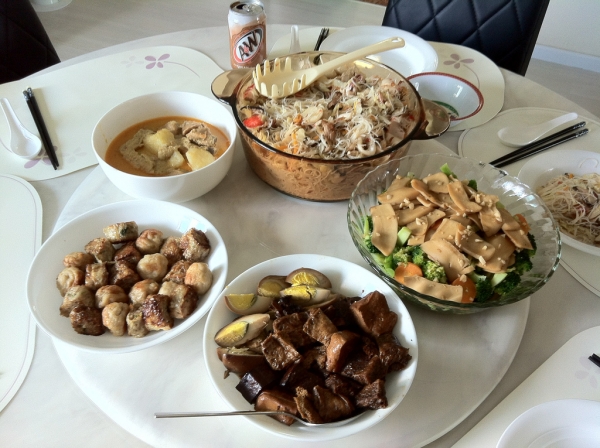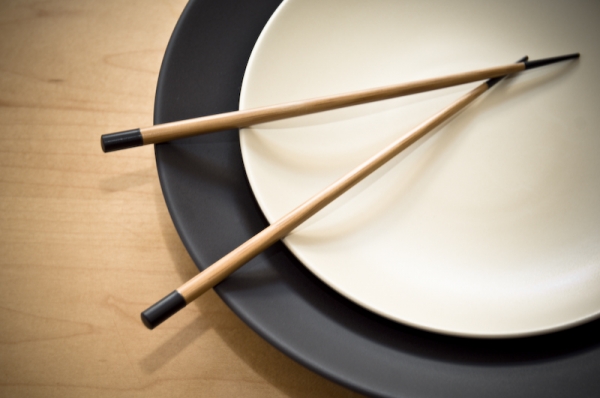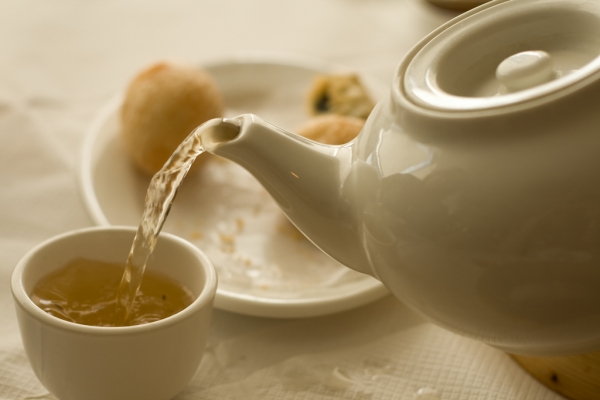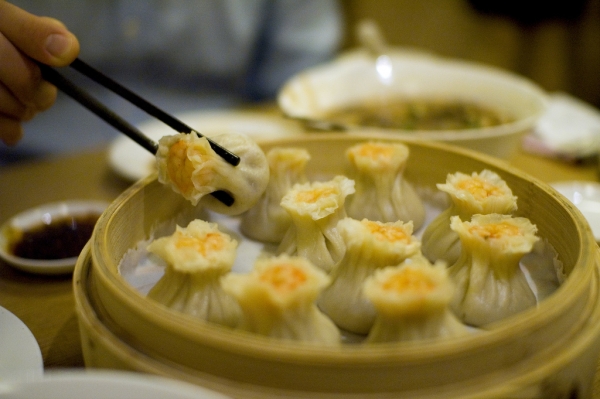Nu pierdeți cele mai bune locuri de muncă!
Abonează-te și săptămânal iți vom trimite un email cu ultimele locuri de muncă disponibile. Introdu adresa ta de email mai jos
Perhaps you’ve decided that you’re going to study or teach abroad in China, but you have no idea what to expect culturally. Like most countries, China’s culture is often most evident at meal times, which you will most likely find is much different than what you’re used to back home. The following tips will help you acclimate better and impress your hosts and friends during dinners in China:
1) Family Style
Meals are eaten in a communal style. If out to dinner with three friends, it’s common to order three main dishes, or if out with five people, five dishes, and so on. Each person has his or her own bowl of rice. Each dish is placed at the center of the table, sometimes on a rotating circular “table” in the middle, so that everyone gets to try each dish.
To take a bite, simply use your chopsticks to take a small portion from one of the dishes from the middle, place it onto your rice to add flavor (since it’s not common to add soy sauce to rice in China and most of Asia), hold the bowl up in one hand, and then use the chopsticks to scoop a bite of rice and the vegetable or meat up to your mouth.
2) Learn to Use Chopsticks
Food in China is eaten with chopsticks. Many restaurants won’t have a fork and knife as an alternative. Moreover, one of the first or second questions a Chinese person is bound to ask you, after whether or not you like Chinese food (say yes!) is whether or not you know how to use chopsticks. At first, it’ll be a foreign feeling for your hand as your muscles get used to being used in a new way.
It’s alright to hold the rice bowl in one hand so that it’s closer to your mouth rather than leaving it on the table. That way, even if the food falls from the chopsticks while you’re still learning, the bowl will be right there to catch it.
3) Free Tea
Free tea or hot water usually accompanies traditional Chinese meals. If not served with the food, you can ask for “kai shui”, which means hot water.
4) Plastic-Wrapped Dishes?
Some restaurants in China will serve your bowl set wrapped in plastic. This is meant to show it’s clean. Typically, there is an extra charge for this and the only way to avoid it would be to bring your own dishes and chopsticks to the meal, but who does that?
You’re likely to still see locals pouring the free hot water or tea into their bowls, swishing it around with the chopsticks, and then dumping it on the sidewalk outside as a way to clean their dishes once again prior to eating.
5) Yelling
Don’t wait patiently for the boss or server to come back over to you. In highly efficient fashion, in China, it’s normal to call out to the boss, or, “laoban” (if it’s a one-person operation), or server, “fu wu yuan”, if you need something or want to pay your bill. It isn’t considered rude in China, so don’t be shy!
6) Serve Others First
If you need more rice or tea, look around the table first to see if anyone else needs a refill, and serve them first, or ask if they’d like more. Your friends will be impressed that you know this about Chinese culture and will appreciate that you’re learning about the importance of serving others first during meal times.
Also, if there is only a bit of meat left or you have noticed one of your friends likes one dish in particular, urge him or her to have the rest rather than taking it for yourself. Chances are, they’ll offer it back to you, but it’s always good to ask first.
7) Bulging Bellies
Sure, portion sizes in places like the US are massive, but they have nothing on portion sizes in China! It’s almost always the case that food goes uneaten during meal times. You can also bet that your friends will urge you to have more rice, or more meat, and may even place pieces of food on your plate!
As is evidenced by a common way of greeting people, “Chi bao le?” which means, “are you full” or, “have you eaten”, you can bet that they don’t want to see you leaving hungry.
8) Who Pays?
It’s common in China for everyone to try to grab the bill and pay it in full or push money at each other. Sometimes the scuffle even continues outside of the restaurant, with one person (usually male) shoving money at the other playfully. Though groups of young friends will often go split the bill equally, it’s common at dinners with middle-aged and older guests that one person will try to pay the bill and will refuse any offers to contribute.
9) Be Prepared for All Animal Parts
No part goes unused, and you may encounter meats and ingredients you’ve never considered edible before. If you can stomach it, give new foods a try. You never know what you may end up enjoying!
10) Slurping
Slurping and chewing and talking with the mouth full are not considered rude in China. It’s completely normal to slurp soup and noodles, and to carry on the conversation even with a full mouth.
In Conclusion
Though there are still some subtle nuances that go along with eating in China, such as locals assuming you don’t like certain foods or asking first if you’re willing to eat things like feet, neck, and innards, if you follow this advice, you’re one step closer to fitting in while living in China.
Sign in to publish a comment




Be the first to comment on this post.